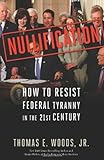By T. Collins -- 10/04/94
Introduction: I was born a first class citizen. I entered into contracts that, without my knowledge, made me a second class citizen. I am working on the legal process of restoring my first class citizenship status.
Video: 14th Amendment Citizenship: Citizen or citizen?
Prior to the alleged ratification of the 14th Amendment, there was no legal definition of a "citizen of the United States", as everyone had primary citizenship in one of the several states. The Constitution referred to the sovereign state citizen, and no one else. Those who went to Washington, D.C. or outside the several states were commonly called "citizens of the United States." In the Constitution for the United States, the term was used to identify state citizens who were eligible under the suffrage laws to hold office, and they were required under the Constitution to have primary allegiance to one of the several states.
Since that term was not specifically defined in the U.S. Constitution, Congress in 1868 took advantage of this term and utilized it in the so-called 14th Amendment to describe a NEW type of "citizen" whose primary allegiance was to the federal government, i.e. Washington, D.C. and not to one of the several states of the union. Thus, using the term as used in the U.S. Constitution to mislead and confuse the people as to the true intent and meaning of the Constitution.
Many people have mistaken the citizen as denominated in the 14th Amendment to mean the same one in the original constitution, this is in error. The "citizen of the united states" as used in the constitution is not the same as the citizen of the United States used after the 14th Amendment. So all the elected officials are NOT sitting in the office constitutionally, they are merely impostors created by the 14th Amendment. The current President Clinton, is a U.S. citizen, and therefore not the "citizen of the united states" defined in the Constitution for the United States, neither the federal senators nor any congressmen are seated constitutionally. These facts being true, then all the federal laws are invalid for want of constitutionality.
The 14th Amendment creates and defines citizenship of the United States. It had long been contended, and had been held by many learned authorities, and had never been judicially decided to the contrary, that there was no such thing as a citizen of the United States, except by first becoming a citizen of some state. United States v. Anthony (1874), 24 Fed. Cas. 829 (No. 14,459), 830.
We have in our political system a government of the United States and a government of each of the several states. Each one of these governments is distinct from the others, and each has citizens of its own who owe it allegiance, and whose rights, within its jurisdiction, it must protect. The same person may be at the same time a citizen of the United States and a citizen of a state, but his rights of citizenship under one of these governments will be different from those he has under the other. U. S. v. Cruikshank, 92 U.S. 542 (1875).
In other words, you do not have to be a citizen of the United States in order to be a state citizen. This was held to be true by the Maryland Supreme Court in 1966 wherein the state:
Both before and after the Fourteenth Amendment to the federal Constitution, it has not been necessary for a person to be a citizen of the United States in order to be a citizen of his state. Crosse v. Bd. of Supvr’s of Elections, 221 A.2d. 431 (1966)
The federal government was never given any authority to encroach upon the private affairs of the citizens in the several states of the union, unless they were involved in import or export activity, neither were they given authority to reach a citizen of Germany living in Germany. In fact, the states could refuse to enforce any act of congress, that they felt was outside the intent of the granting of limited powers to the federal government. This is called interposition or nullification. Several state supreme courts have in the past refused to uphold federal laws within their states.
- Richard McDonald's State Citizen
Read More; http://www.angelfire.com:80/az/sthurston/On_State_Citizenship.html
Nullification: How to Resist Federal Tyranny in the 21st Century


No comments:
Post a Comment